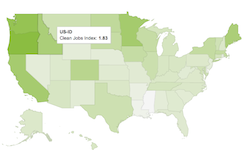GTL Resources USA, Inc. (GTL), owner of Illinois River Energy, LLC (IRE), and Quality Technology International, Inc. (QTI), through its subsidiary, QTI-AMG LLC, have formed a partnership to collaborate on a new, transformative hybrid fractionation technology for corn, dubbed “NextGen FracTM”. According to the companies, this technology solves the serious starch loss and co-product purity problems of current standalone dry fractionation technologies without the complexity and cost of whole kernel wet milling, potentially a major financial boon for corn ethanol manufacturing.
 “We believe that the NextGen FracTM process will be a game-changer in the corn bio-refining space by substantially improving co-product values, reducing ethanol production costs, and opening-up the potential in corn bio-refining to produce next generation biochemicals and biofuels from differentiated corn fractions,” said Richard Ruebe, Group CEO of GTL and IRE.
“We believe that the NextGen FracTM process will be a game-changer in the corn bio-refining space by substantially improving co-product values, reducing ethanol production costs, and opening-up the potential in corn bio-refining to produce next generation biochemicals and biofuels from differentiated corn fractions,” said Richard Ruebe, Group CEO of GTL and IRE.
In dry grind corn bio-refineries retrofitted with the NextGen FracTM process, the kernels are dry fractionated into separate endosperm, germ and bran fractions. The endosperm fraction goes directly into fermentation while the germ and bran fractions are separately wet milled to recover bound starch for fermentation, consequently purifying the germ fraction for food-grade corn oil recovery and the bran fraction for ruminant feed or potential use in biochemical or cellulosic ethanol production.
“This technology addresses the dilemma of producing either high quality food or transportation fuel by producing both, economically,” noted Dan Hammes, President of QTI. “We look forward to a successful collaboration with GTL to demonstrate our technology and to provide the human food and animal feed markets with demonstrably superior co-products.”
According to the partners: a retrofit of traditional dry grind corn biorefineries that produce ethanol and distillers grains to NextGen FracTM has several major advantages:Read More
![]() Flying into the Washington, D.C. area will soon become a bit greener, thanks to a partnership to turn waste cooking oil at an area airport into biodiesel. The Environmental Leader reports Greenlight Biofuels is partnering with airport concessions giant Airmall USA to turn the waste cooking grease at Baltimore/Washington International (BWI) into biodiesel.
Flying into the Washington, D.C. area will soon become a bit greener, thanks to a partnership to turn waste cooking oil at an area airport into biodiesel. The Environmental Leader reports Greenlight Biofuels is partnering with airport concessions giant Airmall USA to turn the waste cooking grease at Baltimore/Washington International (BWI) into biodiesel.


 Our latest ZimmPoll asked the question, “ Which winter farm shows/events are you planning to attend?”
Our latest ZimmPoll asked the question, “ Which winter farm shows/events are you planning to attend?”





